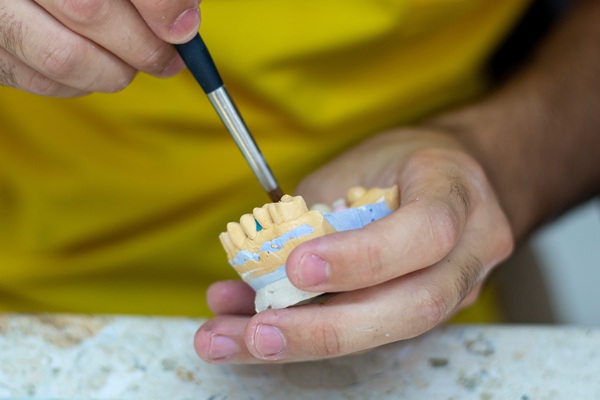Reasons to Consider a Root Canal

A root canal treatment can restore a severely decayed or damaged tooth. This invasive procedure can help improve your dental health. Knowing why you need this treatment can motivate you to schedule an appointment soon. Here are the reasons to consider a root canal treatment.
To treat severe infection
Gum disease, decay, or dental damage can lead to dental infection. The usual target is the pulp, which contains nerves and blood vessels. Bacteria can reach the pulp and cause more chaos. This can cause severe pain that will need a root canal right away.
To correct dental decay
Decay starts at the top layer, which is the enamel. It then develops deeper into the dentin and, finally, the pulp. Following proper oral care practices every day can be difficult because of busy schedules and demanding lifestyles. At first, the dentist may still repair the damage with fillings or dental bonding. But if the damage worsens and reaches the pulp, the dentist will recommend a root canal to salvage the dental structure.
To resolve crown issues
Placing a dental crown over a decayed tooth may protect the tooth for a long time if the patient cares for and maintains it well. A crown can also last for many years without problems. However, sometimes, crowns fail to protect the underlying teeth. Bacteria may reach the pulp and cause pain. This situation will need a root canal.
To prevent the spread of infection
Research shows that an infected or damaged pulp breaks down. This encourages the proliferation of bacteria in the chamber. This often results in swelling, gum infections, and bone loss. A dental abscess may also develop. This condition can spread the infection beyond the dental roots. The dentist will perform a root canal to prevent bacteria from reaching the other parts of the mouth.
To treat a filling problem
Dental fillings can treat minor cavities. But even with this restoration, performing dental care practices may not go so well. This can lead to the worsening of the decay. The damage can then reach the pulp. Treating the tooth with a root canal can prevent the infection from reaching the jawbone and other teeth.
To prevent more infection from chronic pulpitis
Studies show that a tooth weakens each time it receives a filling. This can result in chronic pulpitis, which occurs when bacteria finally get into the pulp. The pulp could die later as the old fillings deteriorate. Bacteria could finally settle inside the pulp chamber and take over. A root canal treatment can remove the bacteria and infected pulp.
To restore a cracked tooth
Eating hard food, teeth grinding, and other damaging activities can result in dental cracks and fractures. The dentist will assess the damage if it has reached the pulp. If it has, a root canal treatment will remove the damaged or infected pulp. Filling the pulp chamber with gutta-percha will stabilize the dental structure. Placing a custom crown will strengthen and protect it.
Your dentist will determine if you need a root canal to restore your tooth
Dental damage or infection can happen at any time. This can cause pain that can be distracting and frustrating. Seeing your dentist can resolve the problem by providing a root canal treatment. This will enable you to keep your tooth for a longer time. Working with your dentist will allow you to adjust well with your new restorations.
Request an appointment here: https://www.advanceddentalcenter.org or call Advanced Dental Center at (562) 222-8307 for an appointment in our Whittier office.
Check out what others are saying about our dental services on Yelp: Root Canal in Whittier, CA.
Related Posts
Restorative dentistry has a handful of ways to go about restoring a broken tooth. It typically comes down to how severely damaged the patient’s tooth is. Restorative dentistry focuses mainly on restoring the function of teeth that have been damaged. Doing so typically improves the way the tooth looks as well.Here are some of the…
Looking for a general dentist who offers laser dentistry services? This advanced dental treatment option is growing in popularity every day, as it offers various benefits that are not available using other treatment options. For example, according to the American Dental Association, lasers are used to reshape gums and remove bacteria during root canal procedures.A…
Having a full mouth reconstruction is a highly involved process. Whether you need one due to severe decay or infections, after suffering a dental trauma, or an issue you were born with, this procedure can help restore the full function and appearance of your smile. After a full mouth reconstruction, there are some helpful ways…
Understanding how Invisalign works is the first thing you must do when considering this popular teeth straightening option. You will undergo an initial evaluation performed by a dental professional, who will then assign you a certain number of custom-made aligner sets, which need to be switched out every two weeks. After using the last set…


